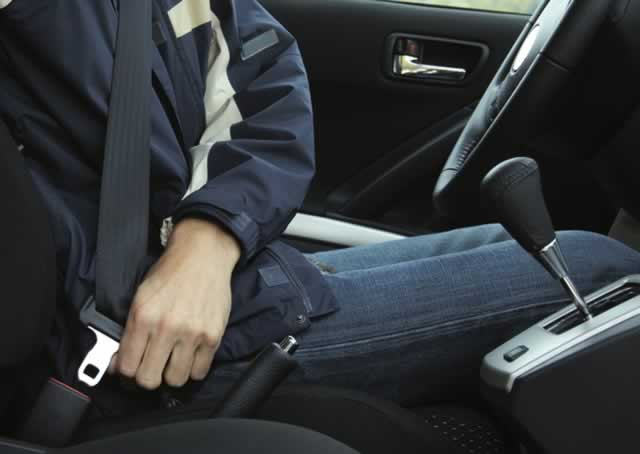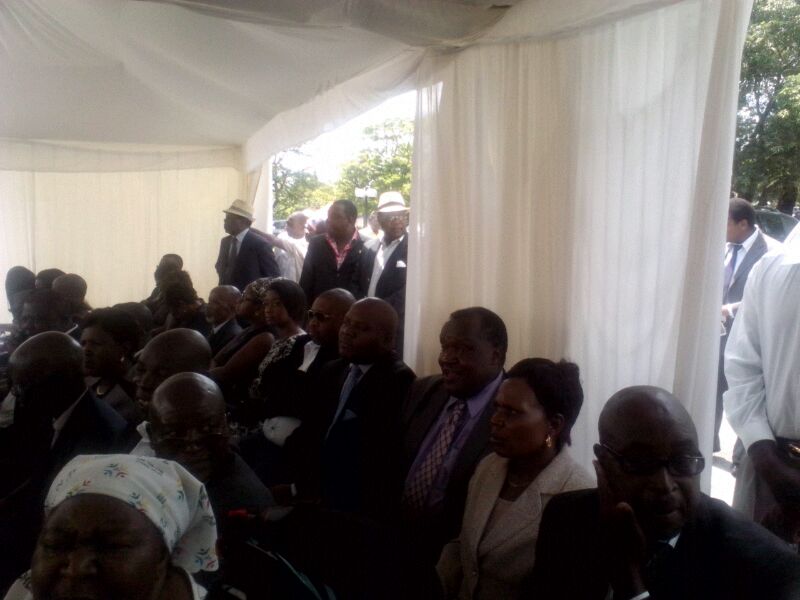Importance of knowledge

Sekai Nzenza
WE are driving to the village. I have been away in Australia and other places for a whole month. As usual, my cousin Piri is in the passenger seat with her bottle of beer, her legs carelessly spread out. She is leaning back on the seat, almost reclining. No seat belt. I have reminded her over and over again that she should put on a seat belt when we are in the car. Does she not, as yet, know that wearing seat belts has often prevented fatal accidents? But her answer, which I do not accept is this one: “Sis, there are no policemen on this village road. I will not restrain my whole body inside a belt.” Then I always stop and refuse to drive unless she puts the seat belt on. Then she does and we move on, like we are doing today.
She burps loudly and does not say pardon me, as she should. Then she tells me that she missed me so terribly when I was away. “Did you really miss me or you missed the beer?”
I ask her, my eyes focused on the road, driving smoothly on the tarred road before we cross the Save river. In a few kilometres we will reach the potholed rough road and my speed will be reduced from 100 kilometres per hour to 20 for the next 30 kilometres.
Our road has been this bad ever since we started going to Harare when it was still Salisbury. My Diaspora sisters say this road takes us to the back of beyond. And yet, we do not come from that far at all.
“Sis, when you go to Australia, do you go past London or is London ahead of Australia?” asks Piri. Kana muchienda ku Australia, munotosiya London here kana kuti London iri mberi? Piri, like me grew up in the village. But that is not an excuse for not knowing basic geography even if you are from the back of beyond.
“Piri, do not ask me that question in front of people,” I tell her impatiently. “Its embarrassing. Last time you asked if Kenya was next door to South Africa. If you recall, I told you that there was a globe on the top shelf at home. I was going to teach you the countries and the cities of the world so you have an idea of the world you live in. But did you ever give me time to teach you? No. You are still busy drinking beer.”
You would think Piri will be offended. But no, she shuffles around and giggles like a young girl. “‘You mean, I should sit down now at my age and study drawings of countries on a map? Me?” she pointed to the space between her breasts and took a big sip of beer.
Is Australia past London? Sometimes, there is that bit of important knowledge that Piri should know. How can she expect to ever go overseas when she has no idea where the countries are on the map? It was precisely because of this kind of ignorance that makes me leave her whenever I go to meetings with people from other countries who do not speak Shona. Piri would definitely embarrass me.
One time the Canadian embassy was celebrating an International women’s day lunch. There were going to be speeches by an Ambassador, a Member of Parliament and other known prominent people who cared about women’s place in Zimbabwe and around the world.
My invitation card specifically asked me to bring along another woman that I was mentoring, possibly a disadvantaged woman. I could think of no other person other than Piri.
Ever since I came back from the Diaspora, I was mentoring her, like what I used to do when I was managing junior staff in development projects. Already, Piri’s dress and appearance had changed.
She was proudly fat and she wore her hair in nice plaits. Clearly, her levels of self esteem and confidence had risen remarkably since the time she lived in the village with Misheki.
Today, if you see her walking past in her knee length tight jean skirt, yellow T shirt and yellow high heeled shoes, you can tell that she is a beautiful woman, achiri kutowanikwa neatanga. But, when it comes to speaking English or knowing anything outside her own environment, then you lose Piri.
When we started this business of going back and forth to the village managing Simukai Development Projects, I was totally convinced that I would transform Piri by imparting so much knowledge about the world. When the time was right, I was going to help her get back to school or even go to university. That was my plan. I was Piri’s mentor.
She was the perfect candidate to come with me to the International Women’s day Celebration at the Canadian Ambassador’s residence. When I told Piri about the invite, she laughed with that annoying tone of sarcasm. “Me, to go and stand among European women and say you are mentoring me? If they say, what do you do? What will you tell them? This is my cousin sister Piri, the one I write about all the time? The one who did not go to school because there was no money for school fees. But she is very intelligent.”
Then Piri started laughing as if this was all very funny. She said she needed no mentoring and will not be introduced to my friends as someone who needs knowledge.
I took the point and I never invited her to any of my meetings where I was supposed to bring a disadvantaged woman whom I was mentoring. And yet, my role is to help Piri understand the world outside her own. We live in a global village and it makes sense to read and know what is going on.
We continue driving along and she keeps on humming some old church song, as if she was this good Christian woman. But I am not giving up on the idea of knowledge and learning. “Some people just do not read at all. I have never seen you reading a book. The only knowledge is from watching Africa Magic or some American comedy on TV. You really should read books and newspapers so you can understand how the world works,” I tell her.
“So, if you show me a map and I learn that Australia is not anywhere near London. And London is also very far from America, then what? What will change if I know where all these places are? I will never go there. I have no passport, no visa, no money,” Piri says, reaching for another beer from the cooler box in the back seat.
I explain the value of knowledge and how it is empowering, especially to women. She frowns then, laughs and says, “Yaa, and sis madzoka zveshuwa. You are back my sister. Knowledge, knowledge, what knowledge and what for? I have enough knowledge. If knowledge could give me a husband, I would have one good one by now. If knowledge could get me a good job I would have one by now. What use is all this knowledge when school escaped me in the days of Ian Smith?”
Piri is lecturing to me now. I listen. She winds the seat up, rests the beer between her legs and says, “So all this talk about books and knowledge has come up simply because I do not know where Australia, London or America is on the map. What about India? Why don’t you ask me about India and China and other places?” She looks very offended. But I know it would not last. Piri does not keep grudges.
She is the type of person who will tell you what she thinks there and then. Once that is done, she moves on to something else.
She often says, “Life is short Sis, why stress over things you cannot change?” But I do stress at times, when my cousin Piri does not see the importance of knowledge in this ever changing global village.
Dr Sekai Nzenza is the Chief Executive Officer of RioZim Foundation.







Comments